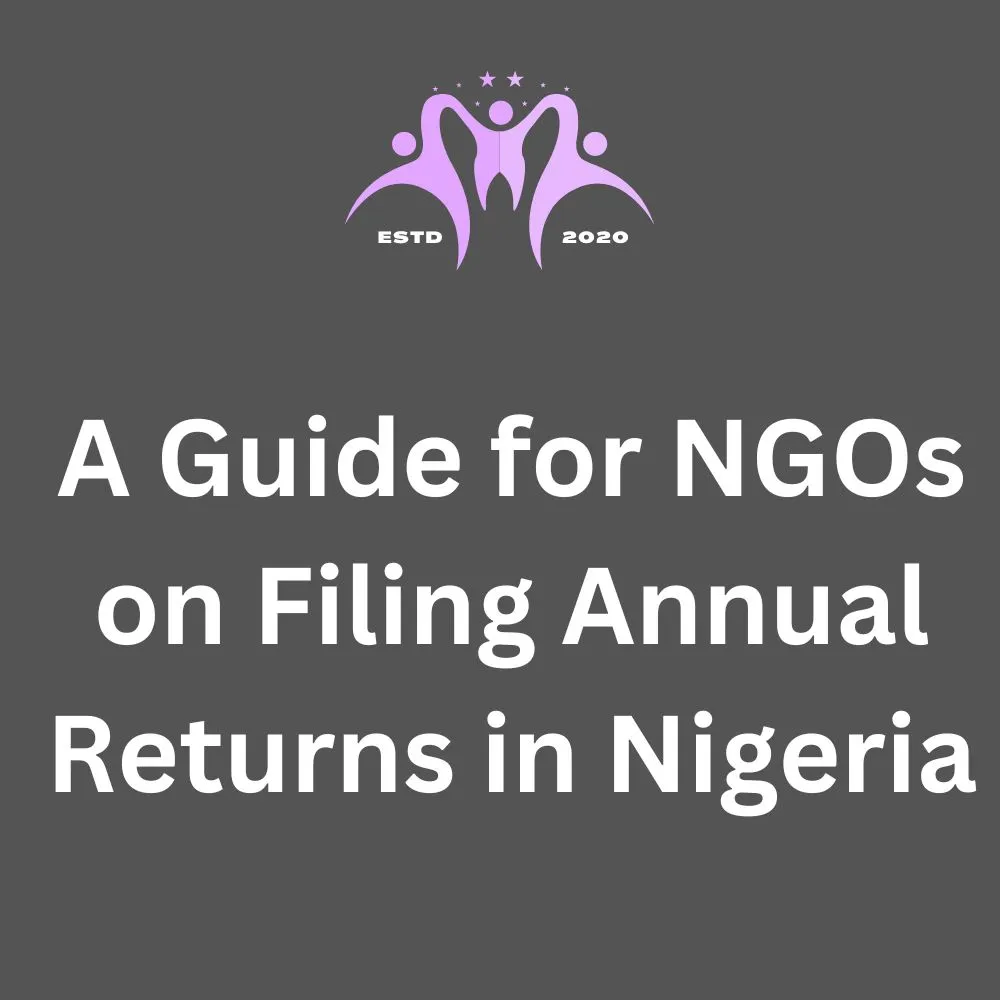The Company and Allied Matters Act (CAMA), 2020 requires all Non-Governmental Organizations (NGOs) operating in Nigeria to file and submit an annual return to the Corporate Affairs Commission (CAC).
This article explains the filing of annual returns by not-for-profit organizations in Nigeria, the documents the NGO must present, and the penalties that may apply for failing to abide by the law.
If you own a business or a company worried about how to do the same, check our guide on how BN or RC can file returns.
Classification of an NGO under CAMA
NGOs are classified under the Incorporated Trustees and are also expected to obey the laws of the land regarding annual filing.
Why NGO needs to file annual returns
As a founder of an NGO working to help promote the well-being of the people of a country, why do I need to file annual returns?

True, one might think there should be a waiver for an NGO regarding annual filing, but it doesn’t work that way.
The fact that an organization works to promote social or political change and play a critical part in developing a country doesn’t exempt them from abiding by the law of the land.
As such, the NGO files an annual return to furnish CAC with information regarding the finances and activities of the organization for a given year.
The annual filing enables the regulatory agency to detect any non-compliance with the law.
What happens if an NGO fails to file an annual return?
Failure of an NGO to file annual returns to the government when due could be treated as a non-compliance, the first corrective measure the CAC takes is to change the status of such an NGO to inactive.
If it fails to comply for several years, it may be delisted by the company registration regulatory agency in Nigeria.
When this happens, such an NGO will not only be delisted but may be blacklisted from operating in Nigeria.
Required Documents for NGO to File Annual Returns
A Non-profit organization needs the following documents to file an annual return:
- Name of NGO
- The NGO registration documents,
- Bank account details,
- Year of registration
Cost:
The total cost of filing an annual return by an NGO depends on the status of the organization and the price stipulated by the CAC and the service charge of an accredited CAC agent.
For instance, if you’ve not filed an annual return for five years or more, you would pay more than another organization that keeps its status active through filing.
Even at that, two payments are non-negotiable, they are:
- NGN5,500/year payable to the CAC. This payment is made through remita
- Penalty for late payment of NGN10,000/year if you have backlogs.
Service charge (if you are using a CAC agent) between NGN5,000 – NGN8,000
Why you may incur more for late filing
If you fail to file an annual return at the right time, say you have 2 or 3 years as backlogs, you will incur extra charges and penalties.
Filing fee: NGN5,500 per year (payable to CAC)
Penalty for late filing: NGN10,000 per year (payable to CAC)
Meaning NGN15,500 (5,500+10,000) will be payable to CAC per year
Payment to change inactive to active: NGN5,000
Service charge by CAC agent: NGN5k-NGN8k
Note: If an NGO is to file an annual return by May 24, 2023, but defaulted, the NGO status changes to inactive. It will only change to active after updating your annual filing.
Conclusion
Filing annual returns by NGOs in Nigeria is a key mandatory and yearly compliance obligation that CAMA 2020 imposes on all non-profit organizations owned by a Nigerian or by a foreigner.
Be compliant to avoid penalties. You can set a reminder to avoid late payments. We hope this guide will help you to make the right decision regarding filing returns by NGOs.

